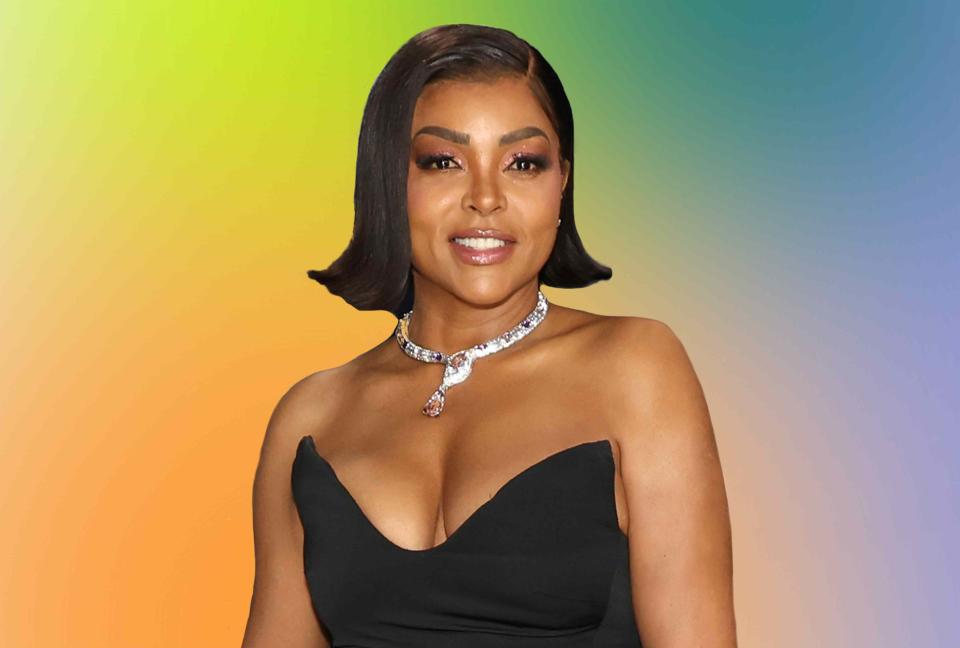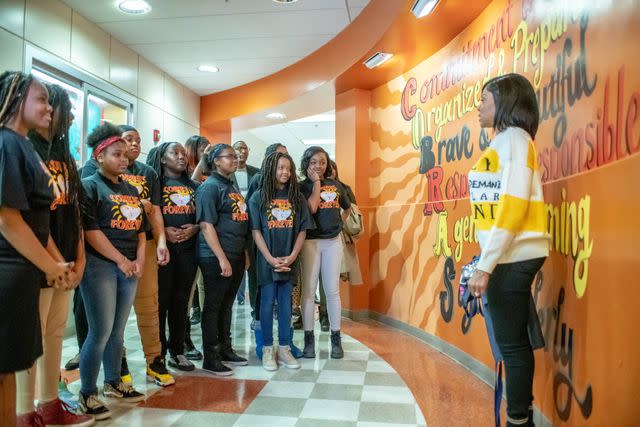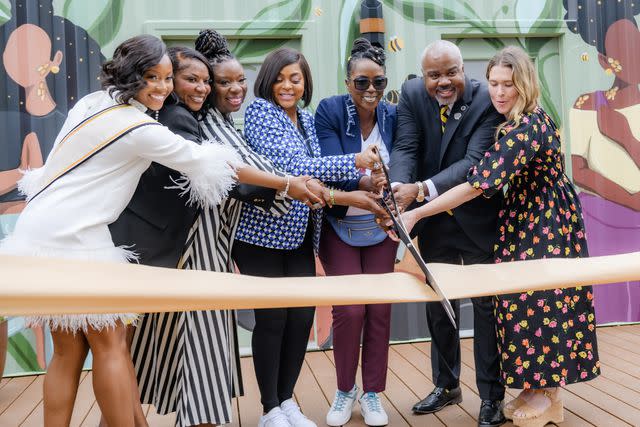Taraji P. Henson Wants You to Remember You’re Deserving of Joy
- Oops!Something went wrong.Please try again later.
A Verywell Mind 25 Honoree

Monica Schipper / FilmMagic / Getty Images
A few things come to mind when you think of Taraji P. Henson—award-winning actress, haircare entrepreneur, and author. Now, add a mental health activist to the list. The "Empire" actor has been working to destigmatize mental health in the Black community since 2018 when she co-founded the Boris Lawrence Henson Foundation (BLHF). Named after her father, Boris Lawrence, the foundation aims to help Black folks access cognitive care by offering free therapy sessions and scholarship funds, plus a host of other programs, including this year’s fundraiser and mixer, The Can We Talk? Symposium event.
Takeaway
Mental health advocacy is more than a passion project for Henson — her work is directly inspired by her experience growing up with her father, who was a Vietnam war veteran with untreated mental health issues. This difficult upbringing moved her to not only create the foundation in her father’s name but also speak to Congress about Black youth suicide rates and launch a Facebook Watch series dedicated to having open conversations around Black mental health.
These many accomplishments moved us to name Henson one of this year’s Verywell Mind 25, an award given to champions of mental health and wellness. We sat down with the multi-hyphenate to discuss her foundation and its impact, what clinicians and advocates can do to further destigmatize Black mental health, and how she’s prioritizing wellness in both her personal and professional life.
Breaking Down Therapy Stigmas in the Black Community
Mental health is becoming more normalized generally, but in the Black community, it remains a shamed subject — something Henson has worked to correct over the years. She points to COVID-19 and the pandemic as a turning point, saying, “More people are talking about it, including those in the Black community.” Though, these conversations, while groundbreaking, haven’t completely erased the mistrust many Black folks hold toward clinicians and professionals, as their fear of being shamed or demonized hinders them from seeking professional care and help: "However, we are still the least likely group to actually ask for help due to a lack of trust, and for good reason," she adds.
But that’s where her foundation comes in.

Boris Lawrence Henson Foundation
“My foundation has been chipping away at that mistrust by offering culturally relevant, barrier-free services in traditional trusted spaces like barbershops, HBCU campuses, and with providers and practitioners who practice cultural humility,” she says.
"Cultural humility in caring for BIPOC communities," she adds, is essential to eliminating this shame and stigma. All care plans should include this by researching and understanding cultural norms and historical contexts, Henson says: "We all show up in the world with cultural norms and historical contexts that are often missed."
Without it, Black folks and people of color will continue feeling therapy isn’t a safe and supportive environment, thus furthering this stigma. To mental health providers, Henson says this: “What services may work for one group can actually be detrimental to another and that goes even deeper into layers of experiences and zip codes. We are not a monolith.”
Related: Why Therapists Say Cultural Safety Is Essential in Mental Healthcare
On Self-Care, Motherhood, and the Power of Joy

A long-time practitioner of mental care, Henson has a pretty easy self-care routine. A surprising fact considering her busy schedule managing multiple projects, businesses, and motherhood. But she likes to keep it simple and practice self-care in whatever small way she can. That looks like not taking calls or having meetings on Sundays and dedicating time to decompress by practicing meditation or having a spa day.
It also means ensuring her son has a routine, too. Being a mom to a young Black man in a world where Black mental health — and Black male mental health, to be specific — isn’t acknowledged nor cared about by the masses is a hard burden to carry. Especially since vulnerability and emotions are something the patriarchy teaches young boys and males to repress. But Henson says she’s teaching her son to go against the grain and recognize that vulnerability is not a sign of weakness.
“We have both gone through trauma, and finding a therapist, a support system surrounding you, and accessible resources are a tremendous help and something that should be more readily available to all,” she says. But it’s not. Support systems and accessible care are privileges most don’t have.
Takeaway
But this shouldn’t stop you from practicing self-care. Because self-care isn’t just a spa day or journaling — it’s joy.
“Vulnerability is your strength, not a weakness," she advises to Black men, women, and children who are struggling. "We have to break the cycle of suffering so that we can live healthy whole lives without being shackled to our trauma. There are free services out here, whether it’s therapy or yoga or African dance that can help you at least start your journey to healing. Joy is our birthright, and you deserve that.”
Maintaining Wellbeing as an Activist
Being an advocate, whether that’s for social justice, climate change, or mental health, is often a thankless, exhausting job—one that Henson struggles with sometimes, but she credits her supporters for keeping her going.

Photo by Marvin Bowser
“I broke my silence to free someone else to share their story and ultimately get the support they need," she admits. "It wasn’t easy, especially when you’re in the public space, but it was worth it. When I get DMs on social media from people who have actually received the free therapy and resources my foundation offers, it fills my heart more than anything I’ve done as an artist.”
She acknowledges that they "still have a lot of work to do, especially given the cuts in funding to DEI initiatives," but Henson is proud of her accomplishments and welcomes the challenges she has to face. For, it is, she reveals, “the progress we’ve made in such a short period of time, that keeps me fighting for us.” And fighting she will do.
Read the original article on Verywell Mind.

